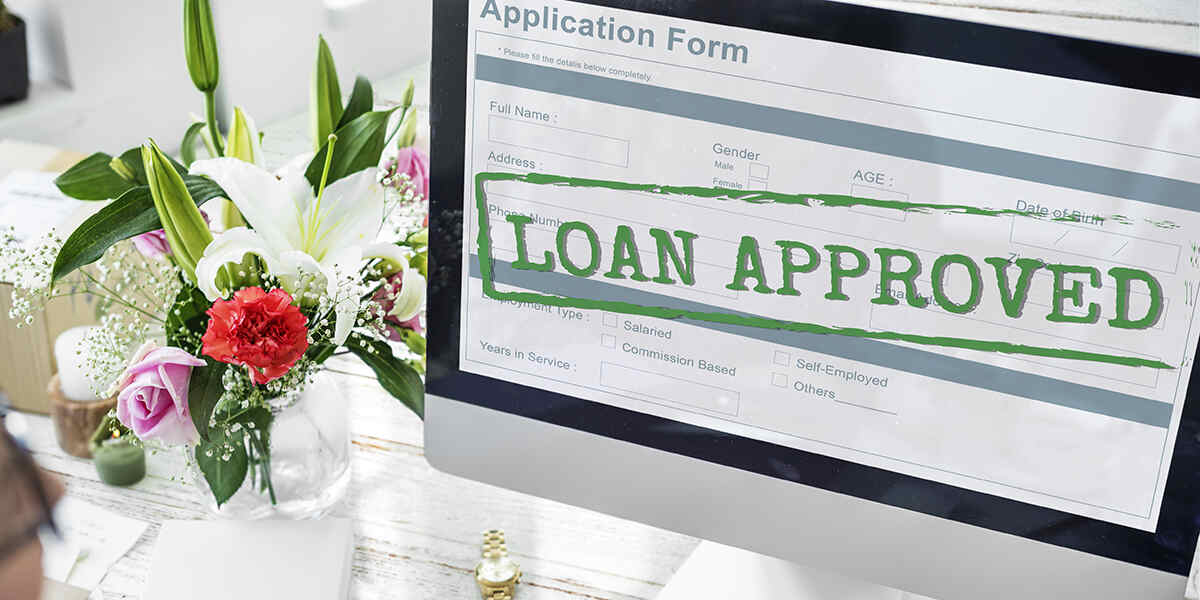Applying for a mortgage loan can seem tricky, especially for first-time homebuyers. However, if you break it down into simple steps, you can manage it more easily. This guide will walk you through the process of completing a mortgage loan application. By understanding each step, you will feel more prepared and confident as you move closer to buying your new home. Let’s explore what you need to know!
Understand the Basics of a Mortgage Loan Application
When starting the mortgage loan application process, individuals should know about important components like the loan amount, down payment, and interest rate. Lenders often require documentation such as pay stubs, tax returns, and bank statements. Applicants can improve their chances of success by obtaining preapproval, which shows how much they can afford. It’s important that they understand terms like fixed-rate and conventional loans to make informed choices.
Providing accurate information is necessary; errors can lead to delays or denials. Applicants should avoid common mistakes such as not including all sources of income or miscalculating closing costs, which can include points and property tax payments. Lastly, understanding the loan estimate helps clarify loan terms, including mortgage insurance costs.
If you ever feel uncertain, reaching out to a qualified real estate agent or experienced mortgage broker such as Champions Mortgage can offer valuable assistance in navigating the process.
Gather Necessary Documentation
Personal Identification
To apply for a mortgage loan, an individual must provide identification like a state-issued ID or a passport. This assists the lender in verifying their identity and is necessary for the preapproval process. The correct identification can ensure that the person qualifies for a specific loan amount, interest rate, and the best mortgage options, such as a conventional loan or fixed rate mortgage.
If discrepancies arise in documents, individuals should contact their real estate agent or lender for guidance. They may need to gather additional documentation to address issues and meet requirements set by the lender. During the application, the lender offers a loan estimate detailing closing costs, points, and mortgage insurance. Lastly, borrowers should research and compare lenders to secure the best terms for their down payment and overall mortgage commitment.
Income Verification
When applying for a mortgage loan, a lender will verify the applicant’s income through various methods. They typically require documentation like pay stubs from the last two months, two years of federal tax returns, and bank statements. This documentation helps the lender assess the applicant’s financial situation. The lender checks if the applicant can handle the monthly payments by looking at the loan estimate and calculating the loan amount based on their income.
To ensure the stability and reliability of this income, the lender will consider factors like job history and the type of employment.
For example, someone with a steady job might show more reliability than someone with an inconsistent income. In addition to this, the lender may review points for mortgage insurance, especially if the down payment is low.
Finally, the lender will discuss potential closing costs, which can vary. By checking income sources and documentation, lenders aim to assist applicants in affording a home with a fair interest rate, potentially locking in a fixed-rate conventional loan.
Asset Information
The individual possesses various types of assets, including liquid assets like savings, real estate holdings, and investments such as stocks or retirement accounts. When applying for a mortgage loan, it is important to disclose the value and ownership of these assets. This information indicates what they can afford as a down payment on a house, impacting the loan amount they seek from a lender.
The individual should be ready to provide proper documentation, such as bank statements and investment account details, to verify the value of these assets. For a preapproval, showing a commitment to transparency in the loan estimate process is beneficial. Lenders may specifically look for information about closing costs and mortgage insurance. If the interest rate offered includes points that affect the loan’s final sale price, this must also be documented.
Securing a lock-in for interest rates while shopping for a conventional loan can help manage payment expectations, especially for fixed-rate loans. Providing all requested documentation makes the process smoother for the real estate agent and the licensed lender involved.
Choose the Right Lender
When selecting a lender for a mortgage loan, borrowers should consider factors such as interest rates, down payment requirements, and the types of loans available.
For example, a fixed-rate mortgage may have a different loan estimate than a conventional loan or an adjustable-rate mortgage. Borrowers should seek a lender that holds a residential mortgage license and is FDIC insured, to ensure credibility. It’s advisable to ask lenders about preapproval processes, closing costs, and any points that could affect the final sale price of the house. Inquiries about the documentation required and whether the lender can provide a lock-in on their interest rate are also important.
Additionally, borrowers may want to compare rates, fees, and mortgage insurance options. Checking online reviews or seeking recommendations from a real estate agent can also help assess the lender’s reliability.
Complete the Mortgage Loan Application
Online Application vs Paper Application
The online mortgage loan application process offers convenience and speed compared to paper applications. Borrowers can easily input their information from any location and submit required documentation quickly. This enables lenders to review applications for preapproval faster, assisting them in assessing loan amounts and down payments without delay.
In contrast, paper applications often require mailing documents, which can slow down the process, especially if additional paperwork is needed. The online method typically includes instant calculations for interest rates and points, providing a loan estimate almost immediately. While both options must follow regulations from the FDIC, many prefer the online route for its ease and accessibility. Both methods require licensed lenders to assess credit history and mortgage insurance, but the speed and efficiency of closing costs can be more favorable with online applications.
Provide Accurate Information
When applying for a mortgage loan, individuals should take specific steps to ensure all personal and financial information is accurate and up-to-date. They might begin by gathering necessary documentation, including income statements, tax returns, and bank statements, to double-check the accuracy before submission. Confirming the loan amount needed for the desired house, applicants should be aware of the interest rate they can receive while maintaining the proper down payment.
Getting preapproval from a licensed lender can provide a clear idea of what they can afford and set a realistic expectation for the final sale price. To avoid common mistakes, they can work closely with a real estate agent or an expert mortgage broker like Champions Mortgage to ensure they understand terms like points and document requirements, including the loan estimate.
Review and Edit Your Application
Before submitting a mortgage loan application, the applicant should carefully review each section for accuracy and completeness. It is important to ensure everything is filled out correctly, as lenders often check these details closely. Proofreading the application helps catch spelling and grammatical mistakes that could make it seem less professional.
Additionally, the applicant must make sure all necessary documentation is included, such as tax returns and proof of down payment. This documentation will support their commitment to the lender. The loan estimate should clearly outline the interest rate, loan amount, and closing costs, allowing the applicant to see if the points and fees are acceptable. For those applying for a conventional loan or a fixed-rate mortgage, having the correct details can influence the preapproval process.
Working with a licensed real estate agent can help navigate these steps while understanding mortgage insurance requirements, which is important for planning the final sale price.
Submit Your Mortgage Loan Application
To submit a mortgage loan application correctly, individuals should begin by collecting necessary documentation, such as pay stubs and tax returns. A preapproval from a lender establishes a commitment to the loan amount, allowing applicants to focus on homes within budget. It is important to check for a loan estimate from the lender, which outlines interest rates, closing costs, and possible points that might influence monthly payments.
Ensuring all required documentation is included is crucial, as missing items can cause delays. It is advisable to avoid common mistakes, such as providing inaccurate information or overlooking mortgage insurance, which can affect the final sale price.
Follow Up After Submission
After submitting a mortgage loan application, it’s advisable to follow up with the lender. The right time to reach out is typically about a week after submission. During this follow-up, inquire about the status of the application, request the loan estimate, and clarify any necessary documentation. This helps ensure everything is on track for approval.
Important points to discuss include confirming the loan amount, down payment requirements, and whether a fixed rate or points would be more beneficial. If a preapproval was received, mentioning that can be advantageous.
Additionally, understanding the closing costs and mortgage insurance details is important. Specific conditions like property tax or prior commitments should also be addressed. If a real estate agent is involved, communicating with them can provide valuable insights into this process.
Understand the Approval Process
The mortgage loan approval process involves several steps that applicants must understand.
First, obtaining preapproval from a lender helps outline the loan amount they can borrow for a house. Applicants must provide documentation, such as income statements and bank account information, to support their application. A lender, who is a licensed residential mortgage licensee, will check this documentation and their credit history. Communication with the lender is important; applicants should ask questions about the interest rate, loan estimate, and necessary points for locking in a rate. Several factors influence approval time, including the complexity of the loan, which might be a conventional loan or a fixed-rate option, along with the completion of required documentation. The closing costs are usually presented in the loan estimate and can range widely, affecting the final sale price.
FAQ
What information do I need to gather before starting my mortgage loan application?
Before starting your mortgage loan application, gather your income documents (pay stubs, tax returns), list of debts (credit cards, loans), bank statements, employment history, and personal identification (ID, Social Security number). Also, check your credit score beforehand to identify potential issues.
How long does the mortgage loan application process typically take?
The mortgage loan application process typically takes 30 to 45 days. To expedite it, gather required documents like pay stubs, tax returns, and bank statements in advance, and respond quickly to any lender requests.
What are the common documents required for a mortgage loan application?
Common documents required for a mortgage loan application include a government-issued ID, recent pay stubs, W-2 forms or tax returns, bank statements, and proof of assets. Check with your lender, as specific requirements may vary.
Is there a fee for applying for a mortgage loan?
Yes, there may be fees to apply for a mortgage loan, such as application fees, appraisal fees, and credit report fees. Check with lenders for specifics; for example, some lenders may waive the application fee if you complete the process online. Always ask for a breakdown of costs.
What should I expect during the mortgage loan approval process?
During the mortgage loan approval, expect to provide documents like pay stubs, tax returns, and bank statements. Stay responsive to your lender’s requests for additional information. Be prepared for a credit check and property appraisal. Set timelines for these steps to stay organized and informed.
Ready to start your mortgage loan application? Join us at Champions Mortgage, where we simplify the process step by step. Contact us today to receive expert guidance and make your application as smooth as possible. Start your journey to homeownership with confidence!







